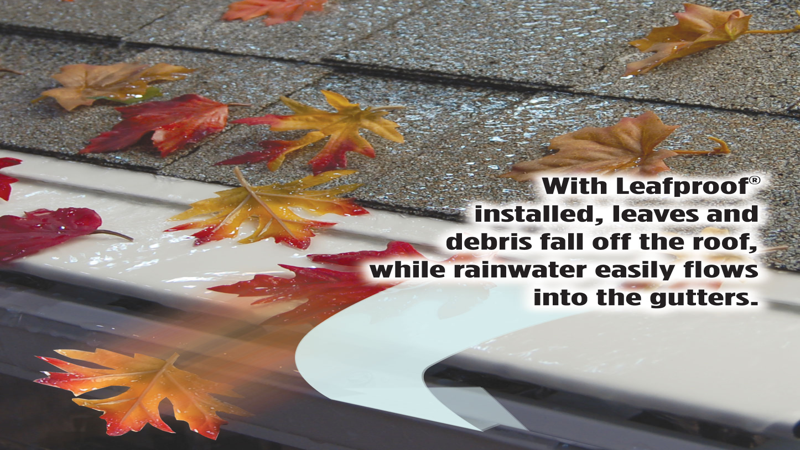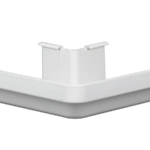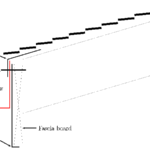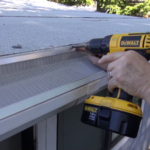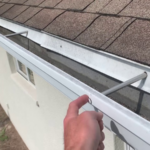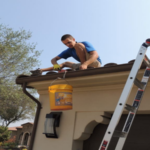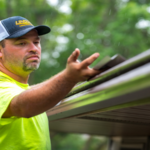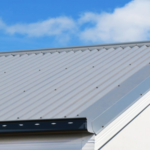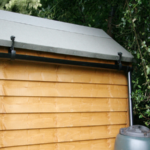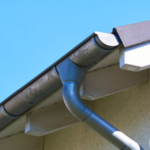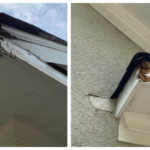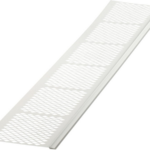If you’re worried about water damage to your home, one of the best things you can do is install gutters. Gutters channel water away from your home’s foundation and help protect your basement or crawlspace from flooding. They also help prevent soil erosion and can extend the life of your home’s exterior paint job. If you live in an area with a lot of rainfall, or if your home is surrounded by trees, installing gutters is a smart way to protect your investment.
What are some common mistakes that people make when installing gutters?
- Not making sure that the gutters are properly pitched. The gutters should be pitched so that they slope slightly towards the downspout, which allows water to drain properly.
- Not attaching the gutters securely to the fascia board. The gutters should be screwed or bolted into the fascia board, not just nailed. This will ensure that they are properly secured and will not come loose over time.
- Not cleaning out the gutters regularly. Leaves and other debris can quickly clog up gutters, so it’s important to clean them out on a regular basis.
- Not making sure that the downspouts are properly installed. The downspouts should be securely attached to the gutters and the house, and they should be positioned so that they direct water away from the foundation.
- Not using gutter guards. Gutter guards can help to keep leaves and other debris out of the gutters, which can make maintenance a lot easier.
What is the most common problem with gutters?
The most common problem with gutters is that they become clogged with leaves and other debris. This can cause water to back up and overflow, which can damage your home’s foundation or cause flooding.
How do you prevent gutter damage?
One way to prevent gutter damage is to have your gutters cleaned and inspected regularly. Clogged gutters can cause a number of problems, including water damage to your home’s foundation and landscape.
Another way to prevent gutter damage is to make sure that your gutters are properly installed and in good condition. If your gutters are old or in disrepair, they may not be able to adequately channel water away from your home. This can lead to water damage to your home’s exterior and foundation.
If you live in an area with severe weather, you may also want to consider installing gutter guards. Gutter guards help to keep leaves and other debris out of your gutters, which can help to prevent clogs and damage.
What is the life expectancy of rain gutters?
The average lifespan of a rain gutter is 20 to 30 years. However, this number will depend on the type of gutter, the climate, and how well the gutter is maintained. For example, a plastic rain gutter will have a shorter lifespan than a metal rain gutter. And a rain gutter that is regularly cleaned and maintained will last longer than one that is not.
How do you tell if gutters are installed correctly?
Firstly, check to see if the gutters are level. This is important because if they’re not level, then water will not be able to drain properly and will instead pool in certain areas. You can use a level to check for this.
Secondly, make sure that the gutters are properly attached to the roof. If they’re not, then they could easily come loose during a storm and cause damage to your home. To check this, look to see if the brackets are secure and there are no gaps between the gutter and the roof.
Thirdly, ensure that the downspouts are properly connected to the gutters. This is what allows water to drain properly from the gutters and prevents them from overflowing. To check this, make sure that the downspouts are not loose and that there are no gaps or leaks.
Fourthly, it’s important to check for any debris that might be blocking the gutters. This can cause problems with water drainage and could lead to gutters becoming clogged. To check for this, simply look inside the gutters to see if there is any leaves, dirt, or other debris present.
Why would you not put gutters on a house?
There are a few reasons why someone might choose not to install gutters on their home. The most common reason is simply because they don’t want to deal with the maintenance that gutters require. Gutters need to be regularly cleaned out to prevent leaves and debris from clogging them and causing water to back up. This can be a time-consuming and messy task that some homeowners would rather avoid.
Another reason why someone might forego gutters is because they live in an area with very little rainfall. In these cases, gutters may not be necessary to protect the home from water damage.
Finally, some homeowners believe that gutters can actually do more harm than good. They argue that gutters can trap water against the side of the house, which can lead to leaks and water damage over time. While this is a valid concern, it can be mitigated by choosing the right type of gutter system and having it installed properly.
Can gutters cause water damage?
Water damage is one of the most common problems faced by homeowners. While the causes of water damage can vary, one of the most common is gutters that are not properly maintained. When gutters become clogged with leaves and debris, they can no longer effectively channel water away from your home. This can lead to water seeping into your home through the foundation or eaves, which can cause serious damage. In addition, gutters that are not properly maintained can also lead to ice dams forming on your roof, which can also cause water damage.
Should gutters be nailed or screwed in?
If you live in a milder climate and your gutters are in good condition, nailing them in place should be sufficient. Just be sure to check them regularly to make sure they are still securely in place.
Bottom Line
If you’re concerned about water damage to your home, consider having gutter installation in Conway AR. This can help to protect your home from water damage by redirecting water away from your foundation.
